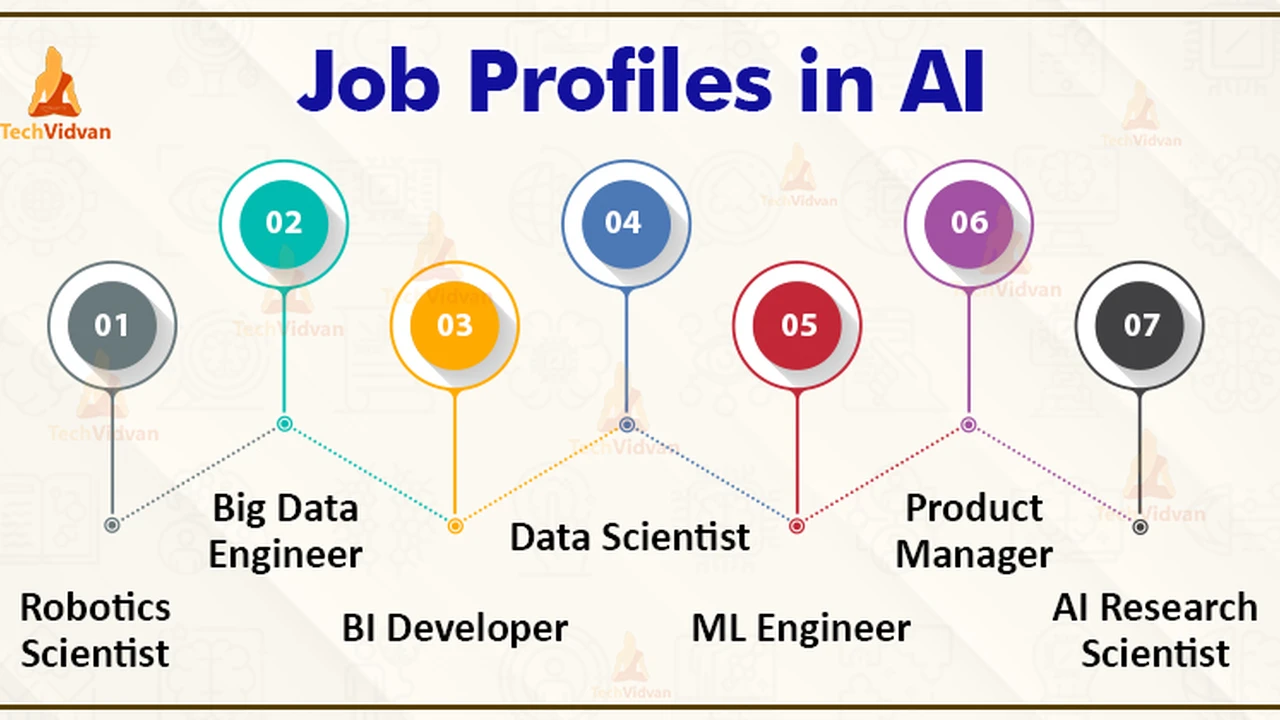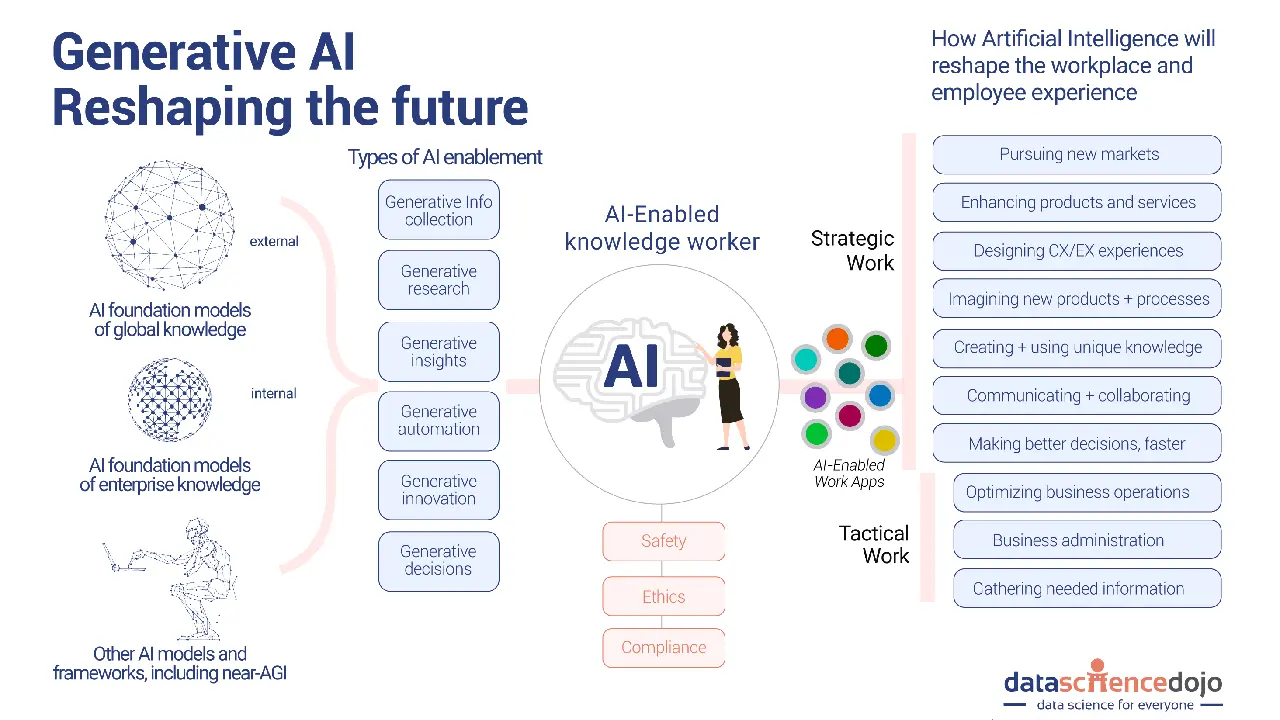AI Job Boards: Find AI Jobs and Opportunities
Meta Description: Discover the best AI blogs to follow for expert insights, industry trends, and thought leadership in artificial intelligence. Stay ahead of the curve with our curated list.

Why You Need to Follow AI Blogs Stay Updated on AI Trends
Artificial Intelligence is rapidly transforming the world around us, impacting industries from healthcare to finance to transportation. Staying informed about the latest advancements, trends, and ethical considerations in AI is crucial for anyone looking to navigate this evolving landscape. Following AI blogs is a fantastic way to do just that. These blogs offer a wealth of knowledge, insights, and perspectives from leading experts, researchers, and practitioners in the field. They provide a platform for sharing groundbreaking research, discussing emerging challenges, and exploring the potential of AI to solve some of the world's most pressing problems.
Whether you're a seasoned AI professional, a student just starting out, or simply curious about the technology, AI blogs can provide valuable resources to expand your understanding. They can help you:
- Stay Up-to-Date: Learn about the latest breakthroughs in machine learning, deep learning, natural language processing, and other AI subfields.
- Gain Industry Insights: Discover how AI is being applied in different industries and the impact it's having on businesses and society.
- Understand Ethical Considerations: Explore the ethical implications of AI, including bias, fairness, privacy, and accountability.
- Learn Practical Skills: Find tutorials, code examples, and other resources to develop your own AI skills.
- Connect with the Community: Engage with other AI enthusiasts and experts through blog comments and social media.
Top AI Blogs for Machine Learning Deep Learning and NLP
Here's a curated list of some of the best AI blogs to follow, covering a wide range of topics and perspectives:
1. OpenAI Blog Cutting-Edge AI Research and Developments
Description: OpenAI is a leading AI research organization dedicated to ensuring that artificial general intelligence (AGI) benefits all of humanity. Their blog features in-depth articles on their groundbreaking research projects, including language models like GPT-3 and DALL-E 2, as well as their work on robotics, reinforcement learning, and AI safety.
Why Follow: Gain access to the latest research findings from one of the most influential AI labs in the world. Understand the challenges and opportunities of developing AGI.
Example Article: "Improving Language Understanding by Generative Pre-Training" (a seminal paper introducing the original GPT model).
2. Google AI Blog Innovations in Artificial Intelligence from Google
Description: Google AI is home to some of the world's top AI researchers and engineers. Their blog showcases their work on a wide range of AI applications, including search, speech recognition, image recognition, natural language understanding, and machine translation.
Why Follow: Learn about the AI technologies powering Google's products and services. Discover the latest research in areas like computer vision and natural language processing.
Example Article: "LaMDA: Language Model for Dialogue Applications" (introducing Google's conversational AI model).
3. Facebook AI Blog Latest AI Research and Applications from Meta
Description: Facebook AI (now Meta AI) is another major player in the AI research landscape. Their blog focuses on their work on a variety of AI topics, including computer vision, natural language processing, speech recognition, and robotics. They also explore the ethical implications of AI and how to develop responsible AI systems.
Why Follow: Stay up-to-date on the AI technologies being developed by Meta. Learn about their efforts to address ethical challenges in AI.
Example Article: "Self-Supervised Learning for Computer Vision" (discussing Meta's work on training computer vision models without labeled data).
4. DeepMind Blog Deep Learning Research and Applications
Description: DeepMind is a British AI company acquired by Google in 2014. They are known for their groundbreaking work on deep learning, including the development of AlphaGo, the first computer program to defeat a world champion Go player. Their blog features articles on their research in areas like reinforcement learning, generative models, and AI for healthcare.
Why Follow: Learn about the latest advances in deep learning from a leading research lab. Discover how AI can be used to solve complex problems in various domains.
Example Article: "Mastering the game of Go with deep neural networks and tree search" (introducing AlphaGo).
5. Towards Data Science A Community Blog for Data Scientists and AI Enthusiasts
Description: Towards Data Science is a Medium publication that features articles written by data scientists, AI researchers, and other experts in the field. It covers a wide range of topics, from introductory tutorials to advanced research papers.
Why Follow: Get diverse perspectives on data science and AI from a large community of practitioners. Find practical tutorials and code examples to improve your skills.
Example Article: "A Beginner's Guide to Neural Networks" (a comprehensive introduction to neural networks).
6. Analytics Vidhya Data Science Machine Learning and AI Tutorials
Description: Analytics Vidhya is a platform that provides data science, machine learning, and AI tutorials, courses, and resources. Their blog features articles on a variety of topics, including data visualization, statistical modeling, and machine learning algorithms.
Why Follow: Learn practical skills in data science and AI. Find tutorials and resources to help you get started with machine learning.
Example Article: "Complete Guide to Parameter Tuning in XGBoost" (a detailed guide to optimizing XGBoost models).
7. Machine Learning Mastery Practical Tutorials and Resources for Machine Learning
Description: Machine Learning Mastery is a blog created by Jason Brownlee that provides practical tutorials and resources for machine learning. It covers a wide range of topics, from the fundamentals of machine learning to advanced techniques like deep learning and reinforcement learning.
Why Follow: Get clear and concise tutorials on machine learning algorithms and techniques. Learn how to apply machine learning to real-world problems.
Example Article: "How to Develop Your First Neural Network in Python with Keras" (a step-by-step guide to building a neural network).
8. KDnuggets News and Insights on Data Science Machine Learning and AI
Description: KDnuggets is a leading online resource for data science, machine learning, and AI. Their blog features news articles, opinion pieces, tutorials, and other resources.
Why Follow: Stay up-to-date on the latest news and trends in data science and AI. Find resources to help you learn about new technologies and techniques.
Example Article: "Top 10 Data Science and Machine Learning Trends for 2023" (an overview of the key trends shaping the field).
9. The Batch Andrew Ng's Weekly AI Newsletter
Description: The Batch is a weekly newsletter curated by Andrew Ng, a renowned AI researcher and educator. It features news articles, research papers, and opinion pieces on the latest developments in AI.
Why Follow: Get a curated overview of the most important AI news and research from a leading expert in the field.
Example Article: Includes summaries and analysis of recent AI research papers and industry news.
10. Lex Fridman Podcast Conversations About AI Science and Technology
Description: While technically a podcast, Lex Fridman's interviews with leading AI researchers, scientists, and technologists offer deep insights into the field. He covers a wide range of topics, from the technical details of AI algorithms to the ethical and philosophical implications of AI.
Why Follow: Hear in-depth conversations with some of the most influential figures in AI. Gain a deeper understanding of the challenges and opportunities of developing AI.
Example Episode: Interview with Yann LeCun (Chief AI Scientist at Meta).
AI Product Recommendations and Comparisons Enhance Your AI Workflow
Beyond just staying informed, AI blogs can also introduce you to valuable tools and platforms that can enhance your AI workflow. Here are a few examples:
1. Weights & Biases (W&B) MLOps Platform for Tracking and Visualizing Experiments
Description: Weights & Biases is a comprehensive MLOps platform that helps data scientists track, visualize, and reproduce their machine learning experiments. It integrates seamlessly with popular deep learning frameworks like TensorFlow and PyTorch.
Use Case: Tracking the performance of different neural network architectures, comparing the effects of different hyperparameters, and visualizing the training process.
Comparison: W&B competes with other MLOps platforms like Comet.ml and Neptune.ai. W&B is known for its user-friendly interface and strong community support.
Pricing: Offers a free tier for individual users and paid plans for teams.
2. Hugging Face Transformers Library for Natural Language Processing
Description: Hugging Face Transformers is a Python library that provides pre-trained models for natural language processing (NLP). It makes it easy to fine-tune these models for specific tasks like text classification, question answering, and machine translation.
Use Case: Building a sentiment analysis model to analyze customer reviews, creating a chatbot to answer customer questions, or translating text from one language to another.
Comparison: Transformers is the leading library for pre-trained NLP models. It offers a wide range of models and is constantly being updated with new features.
Pricing: Open-source and free to use.
3. RunwayML Visual AI Platform for Creative Applications
Description: RunwayML is a visual AI platform that allows creatives to use machine learning models without writing code. It provides a simple and intuitive interface for training and deploying AI models for tasks like image generation, style transfer, and motion capture.
Use Case: Creating unique visual effects for videos, generating artwork from text prompts, or developing interactive installations.
Comparison: RunwayML is unique in its focus on visual AI and its ease of use for non-programmers.
Pricing: Offers a free tier for personal use and paid plans for commercial use.
4. Google Colaboratory Free Cloud-Based Jupyter Notebook Environment
Description: Google Colaboratory (Colab) is a free cloud-based Jupyter Notebook environment that allows you to run Python code in your browser. It provides access to free GPUs and TPUs, making it ideal for training machine learning models.
Use Case: Training deep learning models, experimenting with different machine learning algorithms, and creating interactive data visualizations.
Comparison: Colab is a popular alternative to running Jupyter Notebooks locally. It offers the advantage of free access to GPUs and TPUs.
Pricing: Free to use.
5. Kaggle Data Science Platform for Competitions and Datasets
Description: Kaggle is a data science platform that hosts competitions, datasets, and tutorials. It provides a community for data scientists to collaborate and learn from each other.
Use Case: Participating in data science competitions, finding datasets for machine learning projects, and learning from expert data scientists.
Comparison: Kaggle is the leading platform for data science competitions. It offers a wide range of datasets and a vibrant community.
Pricing: Free to use.
Conclusion Alternatives and Next Steps to Enhance Your AI Knowledge
Following these AI blogs and exploring the recommended tools will undoubtedly enhance your understanding of the field and equip you with valuable skills. Remember to actively engage with the content, ask questions, and experiment with the techniques and technologies you learn. The world of AI is constantly evolving, so continuous learning is key to staying ahead of the curve. Don't just passively read the blogs; try to implement what you learn in your own projects. Contribute to open-source projects, participate in online discussions, and attend AI conferences to expand your network and connect with other professionals in the field. By actively participating in the AI community, you can accelerate your learning and contribute to the advancement of this exciting technology.
Beyond these suggestions, consider exploring specialized blogs that delve into niche areas of AI that align with your interests, such as AI ethics, AI for healthcare, or AI for finance. This targeted approach will allow you to gain deeper expertise in specific domains. Furthermore, don't underestimate the power of academic journals and conference proceedings. These resources often contain the most cutting-edge research in AI, although they may require a more technical background to fully comprehend. Finally, remember that AI is a multidisciplinary field, so it's beneficial to broaden your knowledge base by exploring related areas like mathematics, statistics, and computer science. This will provide you with a stronger foundation for understanding and applying AI techniques.
:max_bytes(150000):strip_icc()/277019-baked-pork-chops-with-cream-of-mushroom-soup-DDMFS-beauty-4x3-BG-7505-5762b731cf30447d9cbbbbbf387beafa.jpg)






